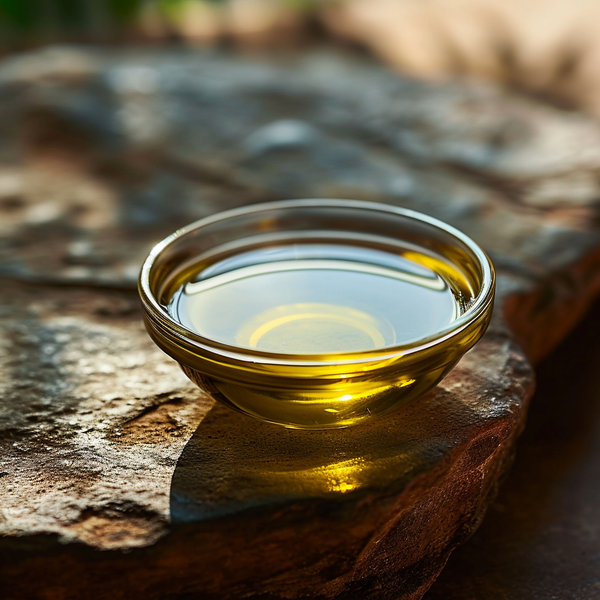
Olive oil
Olive oil, a staple of Mediterranean cuisine, is celebrated for its versatility, health benefits, and rich flavor. Extracted from olives, this oil varies in taste, color, and aroma, depending on the olive variety, region of cultivation, and extraction process. Here's how olive oil is commonly used in cooking:
Salad Dressings and Vinaigrettes: Extra virgin olive oil, known for its robust flavor and aroma, is often used in salad dressings and vinaigrettes. It pairs well with various vinegars and fresh lemon juice, enhancing the flavors of fresh salads.
Sautéing and Frying: Olive oil is used for sautéing and shallow frying vegetables, meats, and fish. While extra virgin olive oil is best used at lower temperatures due to its lower smoke point, refined olive oils can withstand higher heat and are suitable for frying.
Roasting and Baking: Vegetables, meats, and even fish are often roasted with a coating of olive oil, which helps to crisp the exterior while keeping the interior moist. Olive oil is also used in baking certain bread, cakes, and pastries, imparting a distinct flavor and moisture.
Marinades: Olive oil is a key component in marinades for meat, poultry, fish, and vegetables. It helps to tenderize and infuse the food with flavors from herbs, spices, and acidic components like vinegar or lemon juice.
Drizzling: A drizzle of high-quality extra virgin olive oil can enhance the flavor of finished dishes, including grilled vegetables, soups, stews, and pizzas. It adds a fresh, fruity, or peppery note, depending on the oil's characteristics.
Dipping: Olive oil, especially extra virgin, is often served as a dipping sauce for bread, either on its own or with balsamic vinegar, herbs, and spices.
Pasta: Olive oil is used in the cooking of pasta and the preparation of many pasta sauces. It's also drizzled over cooked pasta to prevent sticking and add flavor.
Preserving: Vegetables and cheeses can be preserved in olive oil, which seals out air and imparts a rich flavor. Items like sun-dried tomatoes, artichoke hearts, and feta cheese are often stored in olive oil.
Infusions: Olive oil can be infused with flavors from herbs, spices, garlic, or citrus, creating flavored oils that can be used in cooking or as a finishing oil.
Health and Wellness: Due to its monounsaturated fats and antioxidants, olive oil is a key ingredient in health-conscious cooking, contributing to heart-healthy and anti-inflammatory diets.
When using olive oil in cooking, it's important to choose the right type for your purpose. Extra virgin olive oil is best for cold dishes, low-heat cooking, and finishing, to preserve its flavor and nutritional content. Refined or light olive oils are better suited for high-heat cooking. Olive oil not only enhances the taste of dishes but also contributes to a balanced and nutritious diet.
Nutritional Information
carbohydrates
0 g
fats
100 g
protein
0 g
calories
884